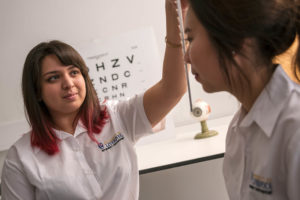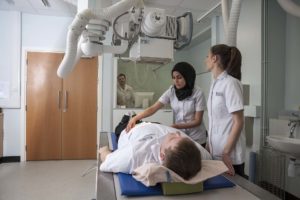About this course
Join a specialist programme for qualified nurses that will build on your existing nursing expertise. We’ll enhance your leadership, research and communication skills and prepare you for advanced and innovative practice as a specialist nurse, nurse manager, nurse educator or nurse researcher.
Introduction
The MSc Nursing programme is a contemporary, vocational programme of postgraduate study that immerses qualified nurses in key issues and ideas relating to the four pillars of professional nursing: communication; leadership; education and research.
Developed in conjunction with the needs of modern professional healthcare organisations, and in collaboration with key stakeholders, the programme aims to nurture innovative professional practice.
The curriculum has been specifically designed to advance students’ existing knowledge and enhance their skills in what is a highly specialised field.
The programme offers students the opportunity to compare and contrast the professional environment of the UK National Health Service with service organisations and delivery in other countries, providing them with a valuable global perspective on healthcare.
You’ll also receive training in leadership and management skills for advanced clinical practitioners and receive expert insights into how to manage complex care needs.
Optional modules enable you to focus on specific aspects of patient care of professional interest. You can specialise in areas ranging from managing critically ill patients to assessing risk, promoting mental health and wellbeing, and managing the emotional impact of diagnosis.
As part of the School of Allied Health Professions and Nursing’s commitment to the promotion of interprofessional learning, this programme has a module in which nurses learn alongside therapeutic radiographers which is imperative for the development of professionals who are comfortable working as part of a multi-disciplinary healthcare team where collaboration is vital.
The programme is led by a small team of experienced and dedicated nursing staff who form part of a larger team of healthcare experts in the School of Allied Health Professions and Nursing. Our interactive, small-group teaching sessions are designed to enhance your transferable skills, from critical thinking and problem-solving, to communication, leadership and teamwork.
For greater educational and professional flexibility, we also offer early exit points at postgraduate certificate and postgraduate diploma levels to ensure that we cater for the needs of nurses with diverse professional responsibilities or personal circumstances.
Who is this course for?
The programme is suitable for nurses who already hold a professional nursing qualification which confers eligibility to practice in the country of training.









